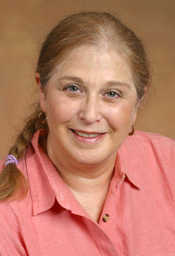 |
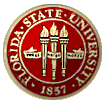 |
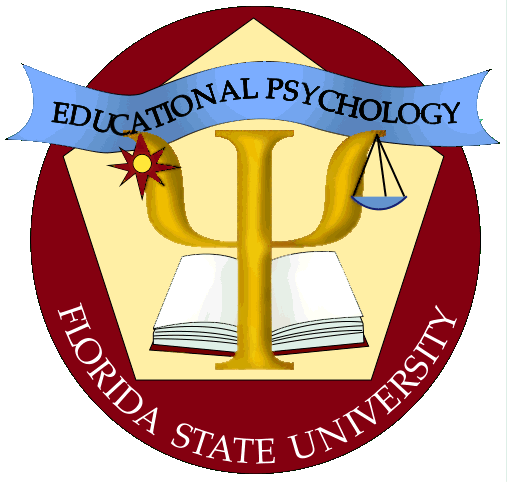 |
Florida State University's College of Education now
posts the information about our Learning and Cognition master's and doctoral
concentration programs. Please follow the links at: http://www.coe.fsu.edu/
 |
 |
 |
| FLORIDA STATE UNIVERSITY | EDUCATIONAL PSYCHOLOGY |
SUSAN CAROL LOSH, Ph.D.
DEPARTMENT OF EDUCATIONAL
PSYCHOLOGY AND LEARNING SYSTEMS
FLORIDA STATE UNIVERSITY
Find out more about our LEARNING AND COGNITION GRADUATE PROGRAMS IN EDUCATIONAL PSYCHOLOGY AND LEARNING SYSTEMS AT FLORIDA STATE UNIVERSITY at the College of Education website for graduate students. We are immensely proud of the growth of our program, the diversity of our students, and their many achievements.
Follow the links to Educational Psychology & Learning Systems, Learning and Cognition at: http://www.coe.fsu.edu/
Learn more about Educational Research nationwide--CLICK HERE and OVER HERE too.
|
|
MORE
ON SCIENCE
ATTITUDES |
THE JOURNAL | TEACHING:
COURSES
OLD AND NEW |
SERVICE | LEARNING
THEORY
APPLICATION |
|
|
My office is 3204 Stone Building
Department of Educational Research
Florida State University
Tallahassee, Florida 32306-4453
(850) 644-4592 (Educational Psychology Office)
(850) 644-7886 (FAX)
![]() slosh@fsu.edu
slosh@fsu.edu
|
|
I am a Social Psychologist and Research Methodologist. My specialties are social cognition (including social perception, attitudes, and public opinion) and group dynamics. Much of my earlier research addressed attitudes toward women and African-Americans. I also examine how cognitive processes and group dynamics apply to tolerance of diversity and intergroup prejudice and tolerance, including gender, ethnicity, and religion.
Right now a major focus for me is how factors such as education, gender, or religious beliefs influence how people process and evaluate information, especially attitudes toward and understanding of science knowledge and support for pseudo science. I am examining the National Science Foundation Surveys of Public Attitudes Toward Science and Technology 1979-2012. I have studied how gender and education influence access to computers, use of computers, and attitudes toward computers over time. The "digital divide" is for real and I have been startled and dismayed that aspects of it are actually increasing, rather than decreasing. Take a look through 2002 at the Social Science and Computer Review article. An update through 2006 including ethnicity appears in Ferro, E., Dwivedi, Y.K., Gil-Garcia, J.R. & Williams, M.D. (Eds.)(2010). IGI Handbook: Overcoming Digital Divides: Constructing an Equitable and Competitive Information Society. Hershey, PA: IGI Global. See it HERE. An update explicitly comparing age and generation effects on "the digital divide" was presented at the Atlanta Conference on Science and Innovation policy HERE.
In the past, I analyzed how gender and education influence basic science knowledge and support for pseudo science systems. Did you know that one-third of adult American women believe that the sun goes around the earth? (In case you wondered, it's the reverse.) Significant gender differences remain, even after educational level, educational major field, and occupational field are considered. Basic science knowledge provides a small bulwark against the acceptance of pseudoscience appeals, such as psychics. Look for more information on the earlier data in the September/October 2001 issue of Public Perspectives.
A synoposis of this research on science knowledge was also published in the January 2002 Popular Science.
How well do aspects of education predict pseudoscience, or entities such as astrology or science fiction fantasies that want to appear scientific but which don't use science rules or scientific types of evidence to understand the material world? The answer is: not very well. A lot of what we think of as "education" is related factors, such as age, or the intellectual products of education such as science factual knowledge. See the analysis that my students and I did in The Skeptical Inquirer, reprinted HERE (without the figures). There are some cognitive reasons and social factors behind these phenomena, check it out HERE
What's clear is that whether we examine the general public or the future teachers of America, U.S. adults have a lot of pseudoscience belief. Life scientists choose to concentrate the most on the evolution-Biblical creation discussion but there is more beyond this major issue. Extraterrestrial visitation, communicating with the dead, psychic "vibes", white or black magic, King Tut's curse or the Loch Ness monster--many Americans either believe these or "await more evidence" to make up their minds. Given that "Nessie" has been around since the sixth century, astrology and magic beliefs stretch back centuries, and even suspicions about space aliens visiting the States stretch back a century or more, we suspect there's been enough time for whatever supportive evidence there is to accumulate by now! You can read more about the U.S. general public and a sample of education majors in the recent paper by me and Brandon Nzekwe HERE, at Science & Education and a second article in the 2011 Journal of Science, Education and Technology.
Currently, I am studying science reasoning, or understanding the processes of science inquiry, among the American adult general public. I am interested in how reasoning relates to basic science knowledge, again against a framework of gender and education. Most recently I examined how birth cohort and education variables predict basic U.S. adult civic science literacy. Contrary to what you may have read, more recent generations of Americans are more science literate, especially for understanding science inquiry. But don't just take my word for it; see the results I presented at the Public Communication of Science and Technology-9 in Seoul, South Korea in May 2006 HERE.
The findings through 2001 also generalize to later data. Generation is very important for science knowledge and more recent generations are more knowledgeable, especially about science inquiry. On the other hand, older people more often reject most forms of pseudoscience, such as belief in astrology or space alien visitation than young people do, and more recent generations are even more likely to endorse beliefs such as astrology than earlier generations. See the update on science knowledge, inquiry understanding, and pseudoscience belief that I presented in London for an International Workshop on Science Indicators HERE (now in a book with Routledge Paul). And Florida State University's Research in Review synopsis HERE.
One of my fun topics applies heuristics or "cognitive shortcuts" to the diverse methods people use to create lottery tickets. This is the ultimate imposition of socio-cognitive structure on a truly random event--the social equivalent of the nonsense syllable or Rorschach test.
I use several methods: surveys or "polls," experiments, and field observations, depending on the research topic. For example, I became fascinated by the interplay between science and religious beliefs. I began with public opinion surveys of Leon County and the State of Florida. A famous social cognition scholar, Thomas Gilovich, suggests that when results coincide with scientific hypotheses, we publish. When they conflict, we collect more data. When I discovered anomalies in the public opinion data, I initiated a field study of religious congregations in North Florida that ultimately grew to 38 churches and synagogues, each studied for four consecutive months. My students and I have coded themes in sermons and liturgy and took copious notes on religious, social, and charitable events. At the same time, I continued studying state and national public opinion data and initiated experiments in heuristics.
My students and I coded over 600 pictures drawn by first, third and fifth graders, who drew a teacher, veterinarian, and scientist. Some researchers believe that these drawings function as projective tests. For example, if scientists are largely drawn as white, middle-aged males, women or people of color may believe that science is "not for them" and be less inclined to choose a science career. Although our students did distinguish among these occupations in their art (for example, 14 percent of the boys drew scientists as monsters with scaly tails, fangs, or horns), we found sizable sex differences that we suspect reflect developmental maturation. Stay tuned as we continue to analyze the "Draw a Scientist" pictures. See our International Journal of Science Education article HERE. Give the paper a moment or two to allow the examples of children's drawings to load! Many of the stereotypes that appear in children's drawings are endorsed by adults in general public surveys. Scientists are seen as "loners" doing dangerous work--and about one-quarter of adults in 2001 saw scientists as "odd and peculiar people". See my 2006 American Sociological Association conference paper analyzing adult stereotypes about scientists over time [available now in Public Understanding of Science (2010)] HERE. My research on stereotypes landed on TV on Discoveries and Breakthroughs Inside Science, jointly sponsored by the American Institute on Physics and Ivanhoe Broadcast news. You can view this information HERE and HERE.
For a complete listing of the various stages of these recent studies in conference papers, symposia, and articles submitted to or appearing in professional journals, Click here on the vita.
In the early 1990s, I met Professor Ray Eve (page currently under development), a social psychologist at University of Texas at Arlington. Ray studies groups such as pagans or wicans whose beliefs reference crystals or herbal healing, rather than "mainstream science." Professor Eve also studies people who believe that human origins on earth trace back to space ships and beings from other planets. His presentations played a pivotal role in two sessions I organized for the American Association for the Advancement of Science, a third symposium for the American Association for Public Opinion Research in Spring 2001, Montreal, a fourth with the American Educational Research Association in Spring 2004 at San Diego, and yet a fifth for the American Association for the Advancement of Science in early 2007.
Other scholars in this area include Professor Erich Goode, the author of Paranormal Beliefs (Waveland Press 2000) and articles in the Skeptical Inquirer. Goode notes that people often simultaneously endorse beliefs that on the surface appear incompatible, such as literal Biblical creation and evolution.
In mid-2013 I became the Editor-in-Chief
of the Sage journal: Bulletin of Science, Technology & Society.
We're a combination of "STS", public understanding of science, the role
of technology, science education, and much more. I'm always on the outlook
for interesting manuscripts and helpful reviewers so click on the link
and check us out.
Read some popular
accounts of what I do and about my colleagues with similar interests:
AAAS
2007 (1)
AAAS
2007 (2)
SCIENCE
NEWS
EARTHWATCH
RADIO AT THE UNIVERSITY OF WISCONSIN
Curious about "weird science?"--what it is and who believes in it? It's not just "Ghostbusters." Discover "weird science" in some of the strangest places, including eminent universities. Take a look at these:
http://scientificexploration.org/
http://www.princeton.edu/~pear/
http://www.discovery.org/
http://www.creationscience.com/
Want to know more about flying saucers,
aliens, the paranormal and other good stuff?![]()
Did you know that restaurants serve fattening food? (Bet you already did.) Get good and scared about gooey cinnamon rolls, burgers, shrimp fried rice, and tacos over HERE.
As point counter-point (on the more conservative side), check out "JunkScience.com" (patience, this site takes a little while to load)
Indicators 2014 is on the way.
The rest of Science and Engineering Indicators from NSF is up too!
You need Adobe Acrobat
Reader for this document.![]()
|
|
Here are some of the courses that I teach:
|
|
|
|
|
|
|
|
|
|
|
|
![]() Note:
As these courses are updated, content will change somewhat.
Note:
As these courses are updated, content will change somewhat.
EMAIL ME FOR MORE INFORMATION:![]() slosh@fsu.edu
slosh@fsu.edu
Interested in Social Psychology? LEARN MORE HERE AND OVER HERE
And HEREis a terrific resource about Group Dynamics.
And, for Social Psychology sections and resources check out
THE
AMERICAN SOCIOLOGICAL ASSOCIATION
THE
AMERICAN PSYCHOLOGICAL ASSOCIATION
AMERICAN
EDUCATIONAL RESEARCH ASSOCIATION
THE
ASSOCIATION FOR THE ADVANCEMENT OF EDUCATIONAL RESEARCH
THE
AMERICAN ASSOCIATION FOR PUBLIC OPINION RESEARCH
|
|
I directed 10 public opinion surveys--over 4000 respondents--of the Tallahassee, Florida Urban Area. Project TAL surveys have inquired about how people feel about social inequality, self-efficacy and health practices such as smoking, and, of course, playing the Florida Lottery.
Many survey researchers belong to AAPOR, The American Association for Public Opinion Research.
Another good site for polls on public policy is The Pew Research Center
See 30 years of American Public Opinion and analyze it online with the General Social Survey
|
|
I have consulted with several agencies about research design and analysis. Some of these experiences result in scholarly publications, others help create more efficient procedures, some improve the sponsoring organization. All of them have enriched my life. Here are some agencies that I have worked with:
I have also worked with:
My public opinion class in Fall 1997 conducted a Random Digit Dial survey of the Leon County, Florida area that provided information on health behaviors and risk factors for the Leon County Public Health Department and the Leon County Health Coalition.
I began working with the Florida State University Chapter of the United Faculty of Florida in 1985 to conduct FSU/UFF's first ever faculty evaluation of administrators survey. I have worked with UFF periodically since on these surveys. Look for reports (including satisfaction with evaluation procedures, building conditions, and parking) in The Faculty Voice online. The symposium I organized for the Association for the Advancement of Educational Research in November 2000 addresses dimensions of conducting these surveys, methodological issues, and how the data are used. I will conduct another symposium for the AAER this fall on collective bargaining in higher education.
As part of my Research Fellowship with the American Statistical Association & National Science Foundation (2003-) I created the first ever archive of the National Science Foundation Surveys of Public Understanding of Science and Technology. Spanning 1979-2006, this archive contains over 270 variables and nearly 24,000 surveys from 12 nationally representative surveys of American adults. Trends in U.S. basic science knowledge and science attitudes can now be assessed online through either the University of Michigan's Inter-University Cortortium of Political & Social Research (Study 4029) or through the Cornell University's Roper Public Opinion Center.
I also served as a consultant to the National Science Foundation-Science Resources Statistics in 2004 for the planned 2006 Surveys of Public Understanding of Science and Technology and in the 2010 workshop for the NSF Surveys, as well as a reviewer for the Science Attitudes chapter for the NSF Science Indicators volumes since 2005.
After two years as Program Chair for the Advanced Studies of National Databases, a Special Interest Group (SIG) for the American Educational Research Association (AERA), I became the SIG Chair in 2013. Learn some of what we do in our recent Newsletter (with thanks to Jim Harvey, our terrific Newsletter Editor) HERE.
|
|
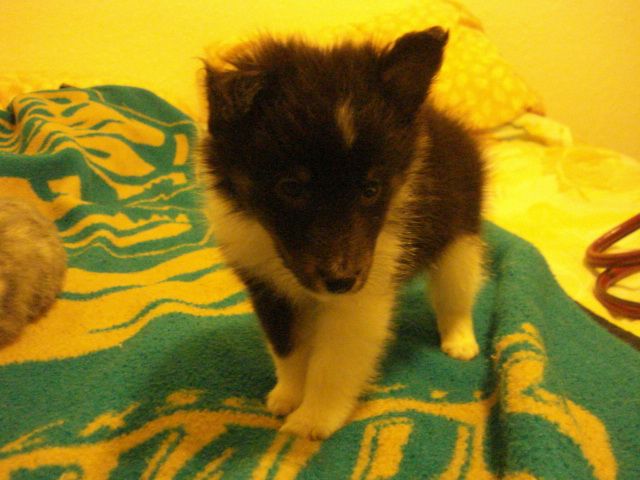
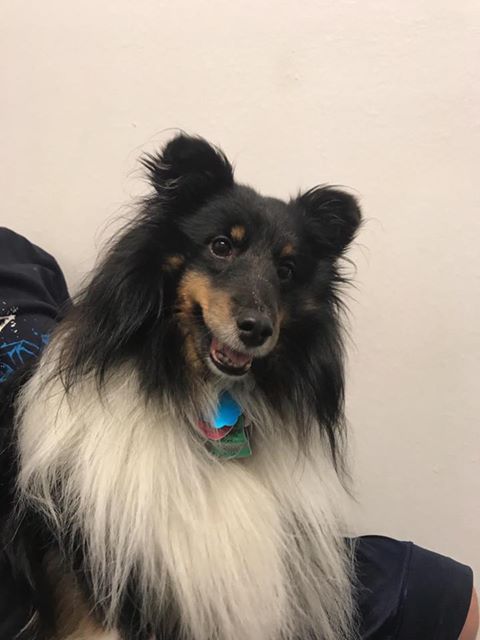 |
|
|
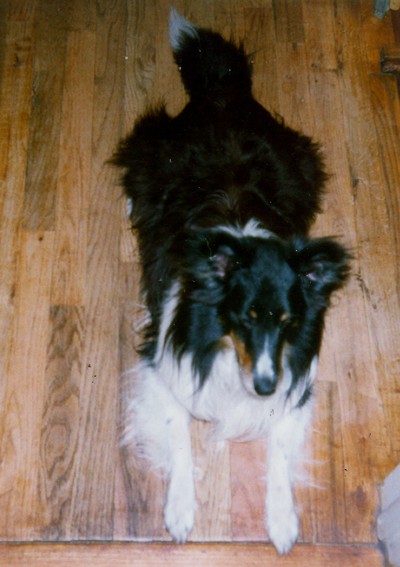 |
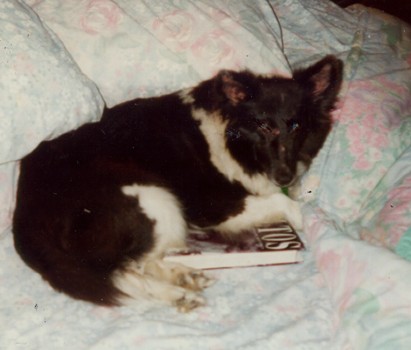 |
| WHISKER'S MON
PETIT CHOU 2010- |
GENESYS FRANCESCA OL'BLUE EYES
2005-2017 |
CELTIC WHISKER'S
BLACK BEAUTY 1995-2010 |
WHISKER'S MR
MAJESTYK 1990-2005 |
MS COURTNEY
1984-1997 |
I'm in Learning and Cognition in Educational Psychology and Learning Systems. It always helps to apply knowledge! I use learning theory methods to train Shetland Sheepdogs (Shelties). Since 1974 my Shelties have enjoyed performing for hundreds of students. In 2005, we lost our magnificent Mr. Majestyk who was nicknamed "The Golden Throat". While our duet of Dolly Parton's "I Will Always Love You" didn't make the David Letterman Show when we tried out several years ago, he got a GREAT review in Jacksonville's Florida Times-Union (READ IT HERE).
I used classical and operant conditioning to train my first Sheltie, Peregrine Falcon (1974-1990). All my later Shelties, have learned through instrumental conditioning and especially modelling--watching the older dogs perform and receive treats. Tallahassee Lassie III (1977-1990) was "shaking hands" in less than half an hour after she watched an older dog receive treats.
Whisker's Black Beauty performed for the Theories of Social Psychology and Lifespan Development classes for 14 years. To my surprise (and the applause of the Theories of Social Psychology students in Fall 2006), Francesca began to perform jumping through the hoop for the very first time right during her class presentation! She's my first Sheltie in several years who can wiggle her ears on command and she catches treats in the air, too.
My online Theories of Social Psychology students now get to watch my Shelties perform on video, with a thank you to Distance Learning!
![]() Like
life, this site is ALWAYS under construction. Your patience is appreciated.
Like
life, this site is ALWAYS under construction. Your patience is appreciated.